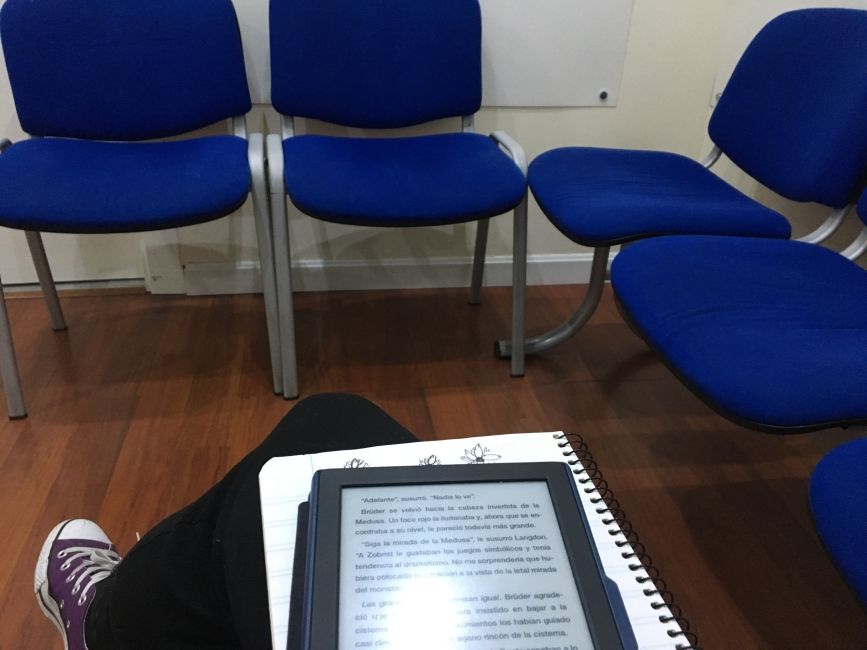What to Do If You Get Sick in Spain
When I came to Madrid, I decided I just wouldn’t go to the doctor. It was too much work. I didn’t want to deal with the language barrier. I would just stay healthy the entire year. And then I got laryngitis.
I had gotten minor colds before and still made it to class, but it goes without saying: if you are a teacher you need to talk. In the Teach in Spain professional program, you do a lot of error correcting, pronunciation help, prompting, and discussion leading, all of which require a healthy voice. I had a sore throat and must have strained my voice speaking up in class. I did attempt to teach one class voiceless and let’s just say I really don’t recommend it. It’s hard enough to control a class of nine people even when you can talk. Not being able to talk made it impossible to error correct or help with pronunciation help.
If you find yourself in this situation, do yourself and your students a favor and cancel class. To do this, you have to contact your coordinator in the office, they will either find a substitution or cancel the class if they can’t find one. Coordination generally needs at least two hours notice to find a substitute. If you wake up sick and you have an 8 am, email your students because it will not be possible to find a substitute.
At the beginning of the program, you are given a list of recommended doctors in the city. Me being as stubborn to stay healthy as I was, I lost this list and had to find an alternative. I used a website called ‘Trip Medic’ which allows you to search for English speaking doctors and make appointments online. I chose this option mostly because it allowed me to make an appointment without speaking and was able to get an appointment that same day.
The clinic was only about a 20-minute metro ride away from my apartment. The staff were very friendly and understanding that I couldn’t speak. The doctor was incredibly helpful too. Being there, I felt very foolish about being so worried about visiting the doctor. The copay was only 50€ total and the medications were less than that. A chip out of my stipend, but a bargain compared to what I would pay in the States. I did save the proof of payment and will see if insurance will cover. The travel insurance that is provided, iNext, does not cover non-emergency visits, so it will have to be through your insurance in the States.
Don’t be like me. Save the list you are given at the beginning. Put it away somewhere in case you need it, chances are you will at some point. Life happens. We get sick, that doesn’t stop just because we are living in another country. It’s normal to feel scared about the language barrier, but remember Madrid is a huge city. There are many expats living here so if you go to the hospital chances are several of the doctors speak English. Additionally, many hospitals have medical interpreters who can help translate or communicate with the doctor if you are unable to speak. Even if they don’t speak English, they are used to working with patients who don’t speak Spanish and are able to talk very slowly. Don’t force yourself to go to class if you are really sick, your students will not appreciate it.
Going to the doctor is never a fun experience, regardless of where you are, but it is a necessary one. Many people in the CIEE programs have had to go to the doctor at one point or another and it has been fine. The group that came after us already has had four people go to the hospital for small emergencies. Don’t put off going to the doctor if you need to. It can be scary but it is necessary. It is not a horrible experience and you will feel so relieved once it’s done. The worry you feel about that strange cough or that pain in your side is much worse than going to the doctor in Spain.
Related Posts

TWICE with CIEE: Kayleigh in Spain (PART 2)
Kayleigh is a CIEE alum who participated in CIEE's Teach in South Korea program AND CIEE’s Teach in Spain Volunteer program! CLICK HERE to read her experience in Korea. WHY... keep reading

CIEE Volunteer Spotlight: Meet Layla!
Where are you from? What was your academic background or career before teaching abroad? I am Canadian, specifically Québécoise. In Quebec, students are required to attend community college (CEGEP) before... keep reading


